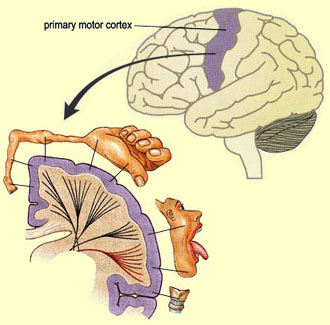Researchers discover gene deletion that allows tissue regeneration in mammals.
By: Nicole M. Myers
 Mar. 2010- Researchers at the Wistar Institute, a international leader in biomedical research, have discovered a gene that could regulate regeneration in mammals, bringing the possibility of re-growing amputated extremities one step closer to reality. The lab identified a gene called p21, that when turned off confers to mice the ability to regenerate lost tissue.
Mar. 2010- Researchers at the Wistar Institute, a international leader in biomedical research, have discovered a gene that could regulate regeneration in mammals, bringing the possibility of re-growing amputated extremities one step closer to reality. The lab identified a gene called p21, that when turned off confers to mice the ability to regenerate lost tissue.
The ability to regenerate lost appendages is common but sporadically observed in nature, as in animals such as flatworms, sponges, and salamanders, but the phenomenon was previously unknown in mammals. Mammals are capable of replacing some types of tissue, such as liver lobes, damaged skeletal muscle cells, epithelium, the gut lining, and even brain cells to some extent. Typically though, the mammalian healing process involves the formation of scar tissue, rather than new cells. Animals like salamanders begin healing with the formation of a blastema, a structure that allows cells to rapidly proliferate and differentiate as embryonic stem cells do, until the appendage is replaced without scarring.
This research began with a chance observation in a particular strain of laboratory mice, known as MRL mice. Researchers used the standard technique of piercing holes in the mice’s ears for identification. However, within a couple weeks, the holes had unexpectedly closed without a trace. The researchers then began to investigate the genetics of the MRL mice to see what might be behind their unique healing ability, and they found that the p21 gene was inactivated. Further research indicated that mice lacking the p21 gene were able to completely regenerate lost or damaged tissue without forming a scar, re-grow cartilage, and partially regenerate amputated digits.
The p21 gene is a cell cycle regulator that blocks the cell cycle progression when there is damage to the DNA, preventing the cells from dividing and potentially becoming cancerous. Similar to naturally regenerative creatures, mice that lack p21 show an increase in DNA damage, but also an increase in apoptosis, or the programmed death of impaired cells. Researchers suggest that “The combined effects of an increase in highly regenerative cells and apoptosis may allow the cells of these organisms to divide rapidly without getting out of control and becoming cancerous.”
Amputation injuries are some of the most devastating and debilitating wounds soldiers sustain in combat. According to the Army Office of the Surgeon General, between September 2001 and January 2009, 1,286 soldiers suffered amputation injuries in Operation Iraqi Freedom and Operation Enduring Freedom. This is the first research to succeed in this degree of tissue regeneration in mammals, giving hope that someday, we may have the ability to restore these lost limbs.
To read the original research published in Proceedings of the National Academy of Science, click: http://www.pnas.org/content/107/13/5845.full



 Mar. 2010- Researchers at the Wistar Institute, a international leader in biomedical research, have discovered a gene that could regulate regeneration in mammals, bringing the possibility of re-growing amputated extremities one step closer to reality. The lab identified a gene called p21, that when turned off confers to mice the ability to regenerate lost tissue.
Mar. 2010- Researchers at the Wistar Institute, a international leader in biomedical research, have discovered a gene that could regulate regeneration in mammals, bringing the possibility of re-growing amputated extremities one step closer to reality. The lab identified a gene called p21, that when turned off confers to mice the ability to regenerate lost tissue.



